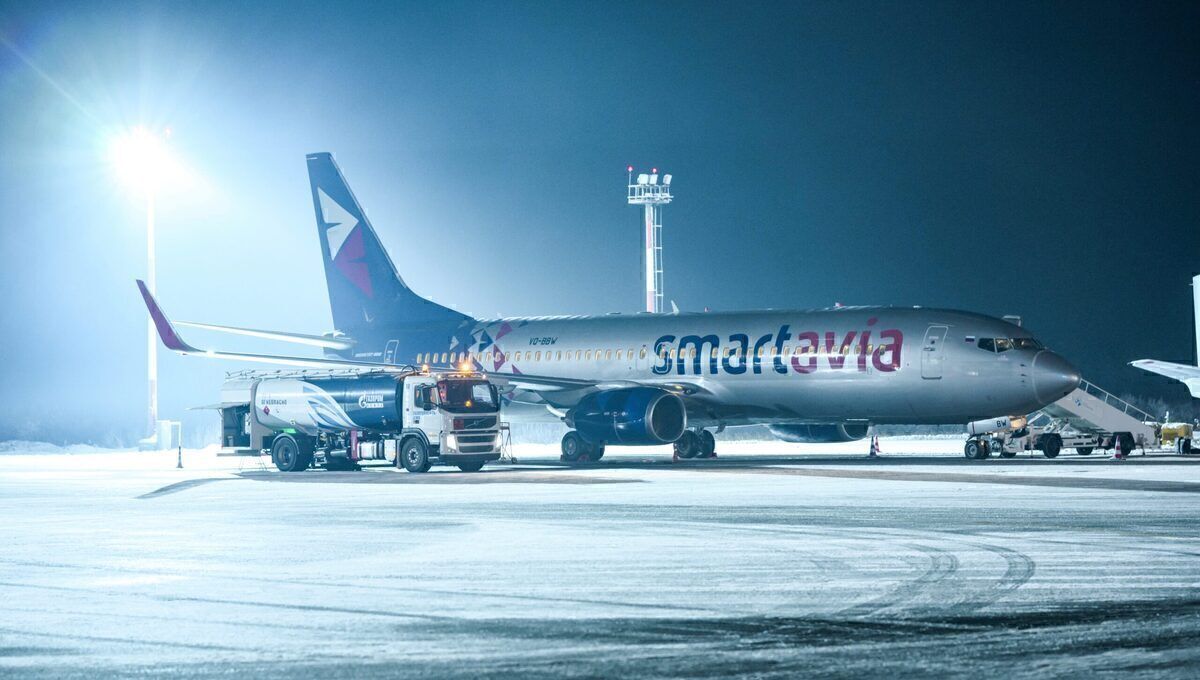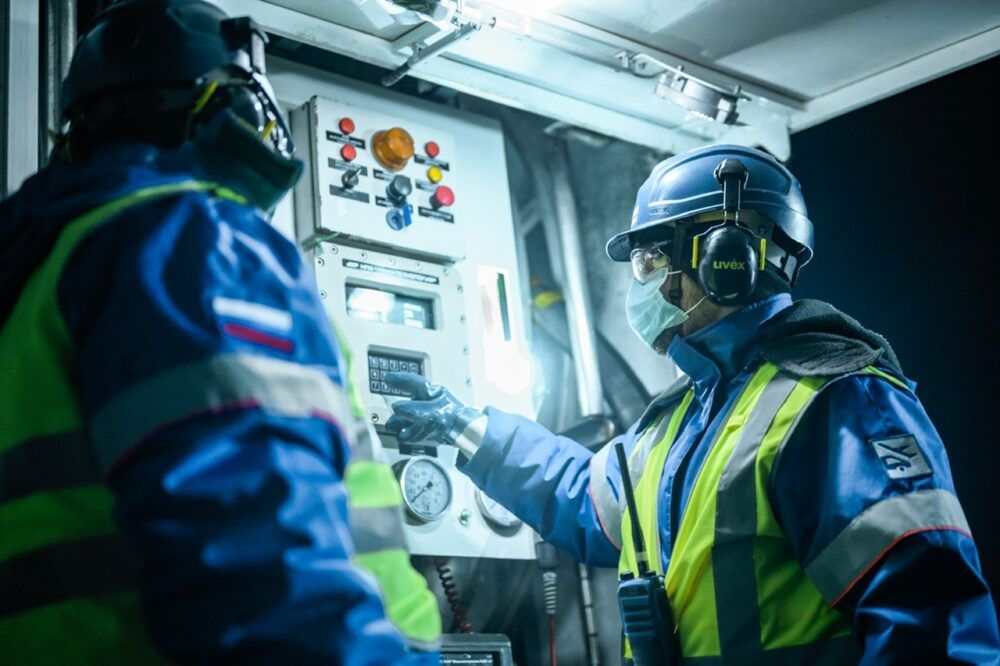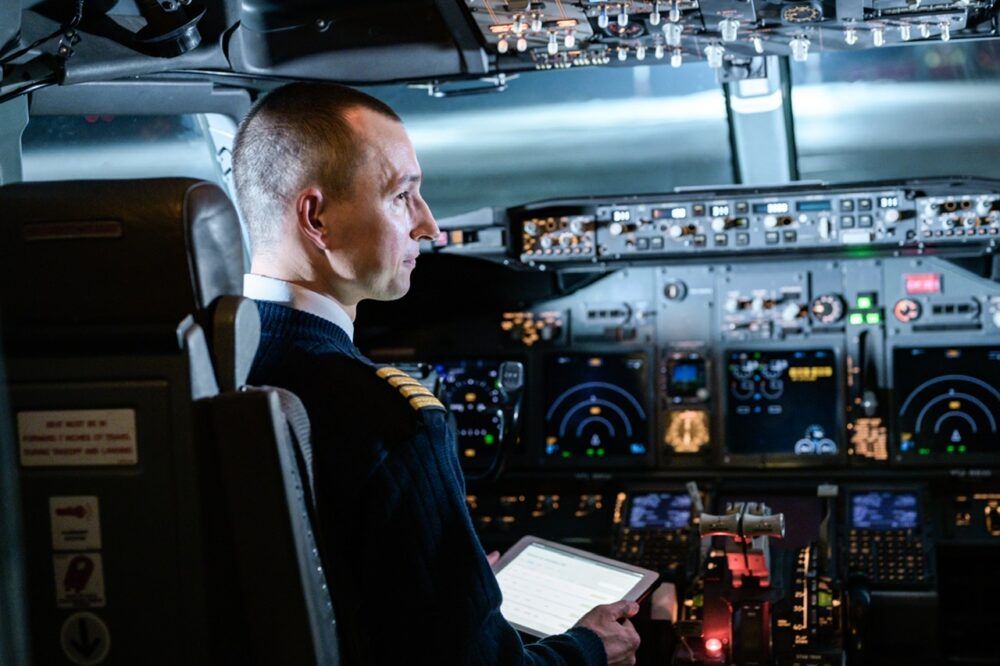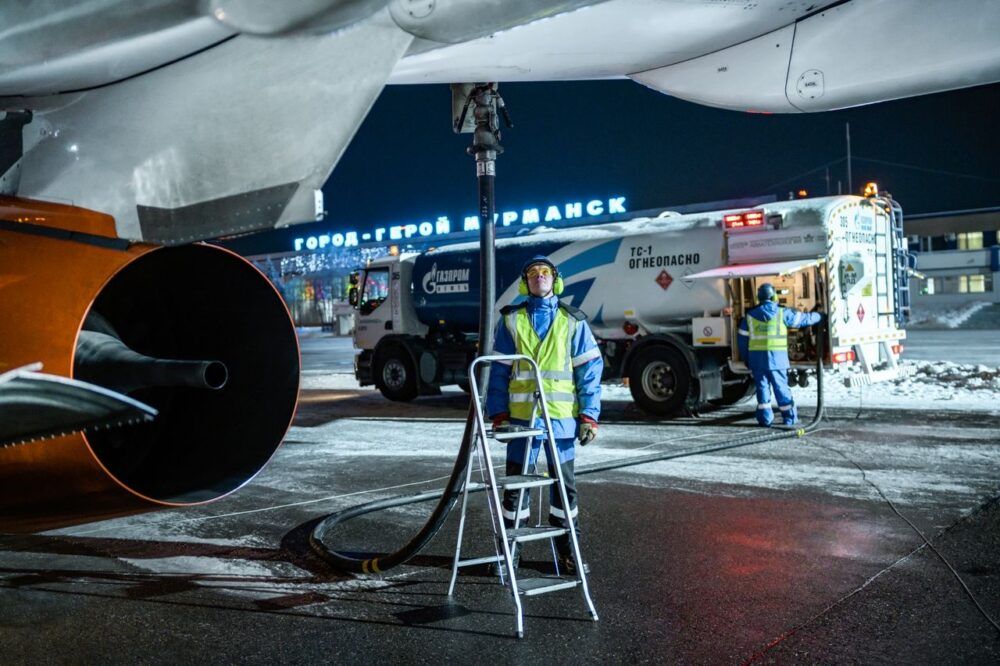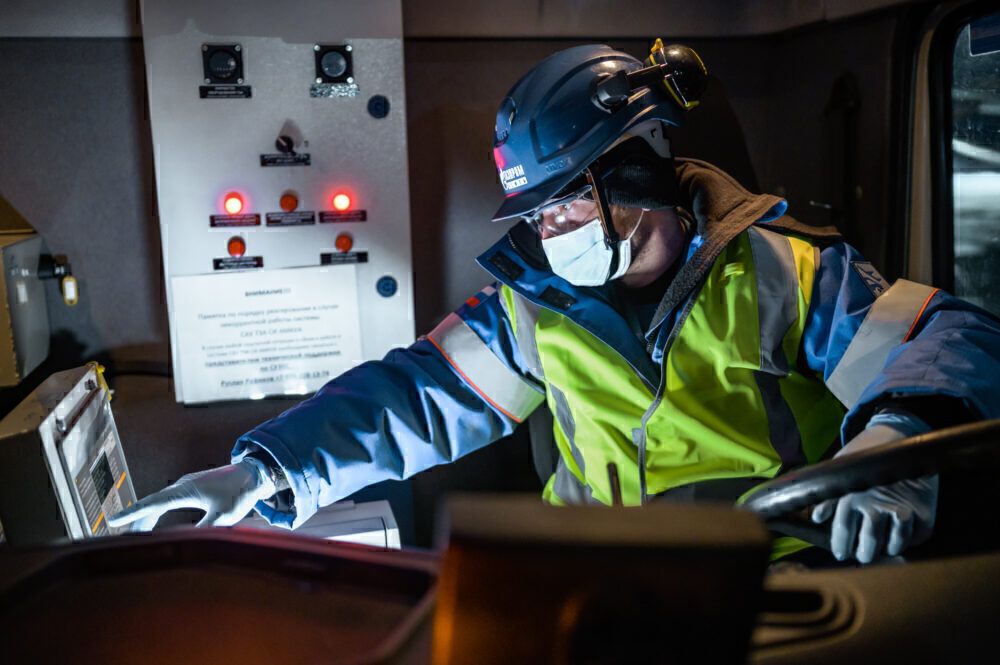Gazpromneft-Aero, the aviation fuel operator of energy powerhouse Gazprom Neft, has successfully completed tests of its own blockchain-based system for digital aviation refueling called Smart Fuel. This platform helps airlines modernize the refueling process significantly.
Tackling inefficiencies
Essentially, blockchain is a growing list of records (blocks) that are linked using cryptography. Each block includes a cryptographic hash of the previous block, along with a timestamp and transaction data. Companies are increasing their reliance on the technology because the data stored here is resistant to being modified. The data in any given block can’t be changed retroactively without changing all of the subsequent blocks.
Notably, the Smart Fuel blockchain system allows for safe instant payments to be made for aircraft refueling. The time of payment processing between fuel supplier and airline can be reduced from four/five days to just 15 seconds. No prepayment is needed, cutting out several administrative steps that can push the refueling payment timeframe to almost a week.
It's not only time-saving benefits that can be had. With blockchain, all operations are performed according to a digital contract. This is approved by all of those taking part in the transaction, eliminating violations of the agreement.
Additionally, the data from the Smart Fuel system enters a carrier's electronic logbook and the digital aviation fuel accounting system of the refueling trucks. This allows the full automation of the refueling and information exchange procedure. Airlines and ground management are able to further optimize their workforce with this blockchain system as manual processes are reduced.
The bottom line
This system reduces disputes when it comes to payments and can save money in accounting processes. Dmitry Makarov, the head of the Smart Fuel project told Simple Flying that the reduction in refueling time actually helps to avoid flight delays, and in general, grants earlier boarding.
It can cost hundreds of dollars for every minute an aircraft is on the ground at the airport. However, refueling time is reduced by an average of 10% with Smart Fuel. So, any time saved can be valuable for both the airline and its passengers.
Stay informed: Sign up for our daily and weekly aviation news digests!
Makarov adds that, under traditional methods, documents can be misinterpreted or data can be incorrectly inputted. These issues require a lot of hard work to rectify. Furthermore, airlines often have to overpay in advance to make sure that there is enough money to cover the fuel. These awkward and tedious encounters are eliminated with blockchain.
Regarding the system’s viability for the international market, Makarov emphasizes that Smart Fuel’s functionality is developed with consideration of IATA’s digital standards. This is not a random choice. Gazpromneft-Aero is an active participant of the association’s Fuel Data Standards Group and is looking to revolutionize the whole industry.
Amid this strict industry compliance, the fuel operator claims the ability for global application and distribution lays in the DNA of its digital solutions.
Collaborating well
Gazpromneft-Aero has been working closely with European financial groups VTB bank and Raiffeisenbank on this project. The firms have been partnering with Russian low-cost carrier Smartavia on tests at Murmansk international Airport. The initial trials at the end of last year were a success. Altogether, over 100 scheduled flights have already been refueled using the system.
Evgeniya Ovchinnikova, head of the R&D center at Raiffeisenbank, says that her company is proud to be one of the first banks to support Gazpromneft-Aero in automating refuel payments processes with blockchain. The bank has expertise in providing built-in solutions for any business processes related to blockchain-based banking services. This saves organizations the trouble of having to develop new software.
Airline appreciation
Smartavia recognizes the benefits of the introduction of Smart Fuel. Overall, the carrier feels that this is part of the natural step forward in the next stage of aviation.
"The new revolutionary approach to the aircraft refuelling is particularly important for our airline – it makes the process fast, transparent and up-to-date," Smartavia CEO Sergey Savostin said in a statement shared with Simple Flying.
"The partnership on this project is an excellent example of how the airline is moving forward with the most advanced technologies, confirming its commitment to a smart philosophy, which, in turn, is the cornerstone of our entire business strategy.”
A clear focus
All in all, the Saint Petersburg-based outfit is determined to digitally transform the aviation fuel business. It highlights that results of the test refueling in Murmansk demonstrate the potential of blockchain. The company feels that its platform can become the very first step in creating an industry-wide blockchain platform that could "potentially unite authorities, airlines, airports and even tourism agencies."
“We first tested a blockchain-based technology for aircraft refuelling in 2018, that’s when we decided to create our own unique Smart Fuel platform. First of all, we prepared the legal basis to be able to use the technology for scheduled flights, and developed a user agreement for airlines.
"The experience of successful test refuelling in Murmansk allows our experts to provide all the necessary assistance to quickly shift to the new technological solution and install the required software package," Gazpromneft-Aero CEO Vladimir Yegorov added in the statement.
"In particular, Gazpromneft-Aero has developed a Smart Fuel module that can be integrated into an airline's electronic flight bag, and created a friendly interface for the pilot and air carrier’s managers. The introduction of such systems corresponds to Gazpromneft-Aero long-term strategy envisioning comprehensive automation and digitization of its facilities based on Industry 4.0 technologies.”
Only the beginning
This year, Gazpromneft-Aero is looking to scale up the Smart Fuel platform. The business is introducing blockchain-based transactions at nine international airports in Russia. These sites include Sheremetyevo (Moscow), Tolmachevo (Novosibirsk), and Koltsovo (Yekaterinburg). The company has an even bigger vision for the decade. It is looking to have the system in place on a global basis.
What are your overall thoughts about how Gazpromneft-Aero is using blockchain technology for its Smart Fuel project? Also, what do you think about the prospects of these systems in the aviation industry? Let us know what you think of the potential of this initiative in the comment section.

